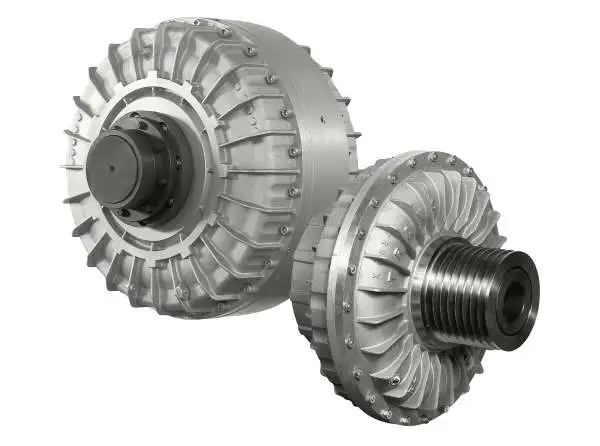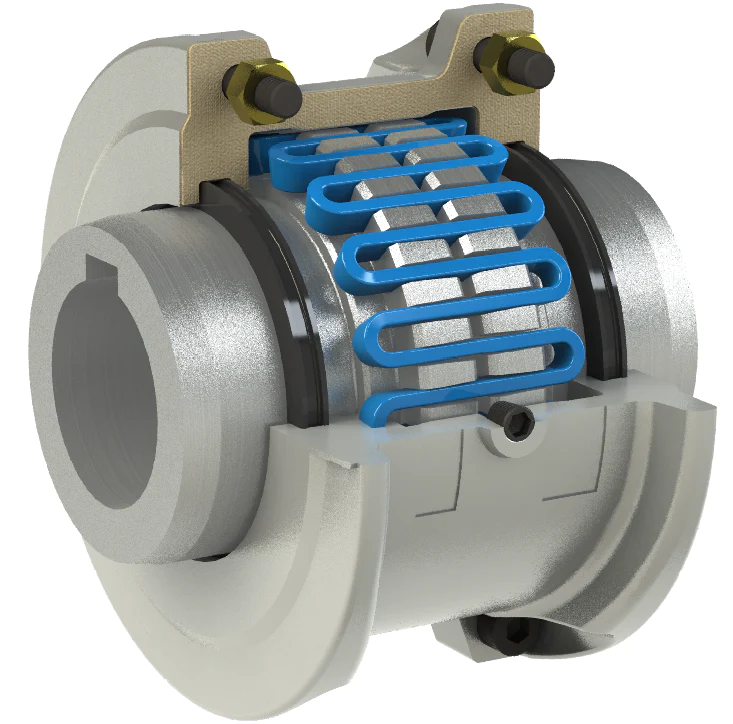Product Description
Densen Customized CNC Motor Jaw Shaft Coupling, Industrial Equipment Flexible Coupling Wholesale
| Product Name | CHINAMFG customized CNC motor jaw shaft coupling, industrial equipment flexible coupling wholesale |
| DN mm | 12~160mm |
| Rated Torque | 25~25000 N·m |
| Allowable speed | 15300~1500 N·m |
| Material | 35CrMo/ZG270/45# steel/Aluminum alloy |
| Application | Widely used in metallurgy, mining, engineering and other fields. |
Product show
Company Information
HangZhou New CHINAMFG Casting and Forging Company is the sales company of HangZhou CHINAMFG Group of Companies. Features of New CHINAMFG simply summarized as below:
1. Trusted supplier of steel, iron & non-ferrous components;
2. Extensive documented quality program in place.
3. Castings, forgings, stampings, machining, welding & fabrication services.
4. 9 related factories, over 50 joint-venture sub-contractors.
5. 25+ years of manufacturing experiences, 10+ years of exporting experience
6. 100% of products sold to overseas customers.
7. 50% of customer base is forturne 500 companies.
Processing support
Casting Service:
Casting is a manufacturing process in which a liquid material is usually poured into a mold, which contains a hollow cavity of the desired shape, and then allowed to solidify.
New Densen offers multiple investment casting, sand casting, permanent casting, die casting, low pressure casting, ESR casting, lost foam casting, etc. Material can be handled include steel, iron, non-ferrous. Single component weight range is from 0.01Kg to 150 tons separately.
Forging Service:
Forging is a manufacturing process involving the shaping of metal using localized compressive forces. New CHINAMFG offers open die forging, closed die forging and ring forging services. Material can be steel, iron and non-ferrous. Material can be handled include steel, iron, non-ferrous. Single component weight range is from 0.1Kg to 50,000Kgs.
Stamping Service:
Stamping (also known as punching) is the process of placing flat sheet metal in either blank or coil form into a stamping press where a tool and die surface forms the metal into a net shape.
New Densen-XBL has more than 60 sets stamping equipments, is the designed supplier for several famous bands automotive companies, has the full ability to offer whole processes from blanking, stamping, welding, to electrostatic spraying for CHINAMFG customers.
Welding & Fabrication Service:
Welding Frabrication is the fabrication process of metal structures by cutting, bending, then assembling the components together through welding
New CHINAMFG offers manual arc welding ,laser welding and robot welding etc. UT, MPT,RT,PT all are available used for inspection, WPS &PQR (Welding Process Specification& Procedure Qualification Records) before production is available under clients’ requirement.
Machining Service:
Machining is any of various processes in which a piece of raw material is cut into a desired final shape and size by a controlled material-removal process.
New Densen-XBL has more than 60 sets precision machines incl. CNC center, boring, milling, lathing, etc., and more than 300 inspection instruments incl. 3 sets CMM with grade μm. Repeated tolerance can be maintained as 0.02mm. Meanwhile awarded by certificates ISO9001-2008; ISO/TS16949. New Densen-XBL specialized in high precise machining for small-middle-big metal components.
3rd Party Inspection:
New Densen worked as 3rd party inspection center besides its sister factories or sub-contractors’ self inspection, Offers process inspection, random inspection and before delivedry inspection services for material, mechanical, inside defects, dimentional, pressure, load, balance, surface treatment, visual inspection and test. Weekly project follow-up report together with pictures and videos, full quality inspection documentation available.
New CHINAMFG also designed as 3rd party inspection representative for several customers when their products made by other suppliers.
Application:
FAQQ1. Are you a manufacturer or a trader?
Manufacture, we have 5 own foundries, 4 in ZheJiang Province, 1 in ZHangZhoug Province
Q2. Do you have MOQ request?
1 pcs per order is ok with us , unless material is seldom used.
Q3. If I only have a sample,without drawings, can you quote then manufacture for me?
Just send us the sample, we would have the sample simulated and measured by professional equipment then issue formal drawings for
you , at the same time, we could help you optimize the design according to your demand and related processes’ feasibility.
/* January 22, 2571 19:08:37 */!function(){function s(e,r){var a,o={};try{e&&e.split(“,”).forEach(function(e,t){e&&(a=e.match(/(.*?):(.*)$/))&&1

Are there any Safety Considerations or Guidelines Related to the Installation of Industrial Couplings?
Yes, the installation of industrial couplings requires careful attention to safety considerations and adherence to specific guidelines to ensure the coupling functions correctly and safely. Improper installation can lead to coupling failures, equipment damage, and potential hazards for personnel. Here are some essential safety considerations and guidelines related to the installation of industrial couplings:
- Follow Manufacturer Instructions: Always follow the manufacturer’s installation instructions and guidelines provided with the coupling. Manufacturers have specific recommendations for proper installation, which may vary depending on the coupling type and model.
- Use Proper Tools and Equipment: Use the appropriate tools and equipment for the installation process. Ensure that torque wrenches and other tools are properly calibrated to achieve the correct bolt torque and avoid over-tightening or under-tightening.
- Verify Shaft Alignment: Before installing the coupling, verify the alignment of the connected shafts. Proper shaft alignment is crucial to prevent premature wear, vibration, and misalignment-related issues during operation.
- Ensure Clean Surfaces: Clean and inspect the shaft ends and coupling bore to remove any dirt, debris, or old lubricants. Clean surfaces ensure proper contact and reduce the risk of contamination inside the coupling.
- Check Coupling Fit: Ensure that the coupling fits properly on the shafts and that there is sufficient clearance between the coupling and surrounding components. Avoid interference that could lead to mechanical binding during operation.
- Verify Keyway and Key Fit: If the coupling uses a keyway and key for torque transmission, verify that the key fits securely and accurately in the keyway without any play or gaps.
- Inspect Flexible Elements: For flexible couplings, inspect the flexible elements (e.g., elastomeric inserts or diaphragms) for any damage or defects before installation. Replace damaged elements with new ones as needed.
- Tighten Bolts Gradually: When tightening coupling bolts, follow a gradual tightening sequence in a star or cross pattern to ensure even distribution of the load. This prevents uneven stress on the coupling and shafts.
- Use Locking Devices: Consider using appropriate locking devices, such as split washers, locking nuts, or thread-locking compounds, to prevent bolts from loosening during operation.
- Perform Post-Installation Checks: After installing the coupling, perform post-installation checks to verify proper alignment, bolt tightness, and overall coupling integrity before putting the machinery into full operation.
Following these safety considerations and guidelines is essential to ensure a safe and successful installation of industrial couplings. Regular maintenance and inspections throughout the coupling’s service life are also crucial for identifying potential issues early on and addressing them promptly to prevent accidents or damage to the machinery.

Role of Couplings in Vibration Damping and Noise Reduction within Industrial Machinery
Couplings play a crucial role in vibration damping and noise reduction within industrial machinery. Vibrations and noise are common challenges in rotating machinery and power transmission systems, and they can lead to various issues such as increased wear and tear, reduced precision, and even structural damage. Couplings are designed with features to address these challenges and enhance the overall performance of industrial machinery:
- Vibration Isolation: Flexible couplings, such as elastomeric couplings and gear couplings with elastomeric elements, have inherent vibration-damping properties. These couplings are designed with flexible components, often made of rubber or polyurethane, that can absorb and dissipate vibrational energy. When the machinery experiences dynamic loads or resonance, the flexible coupling dampens these vibrations, preventing them from propagating through the system. This vibration isolation helps protect the connected equipment, bearings, and other components from excessive vibrations and prolongs their lifespan.
- Noise Reduction: Vibrations in industrial machinery often generate noise, which can be bothersome for operators and personnel working in the vicinity. Couplings with vibration-damping capabilities can also reduce noise levels significantly. By dampening the vibrations at the source, the noise generated by the machinery is minimized. This results in a quieter working environment, improving comfort and safety for workers and reducing noise pollution in the surrounding areas.
- Misalignment Compensation: In addition to vibration damping, some couplings can accommodate misalignment between connected shafts. Misalignment can cause vibrations and noise in machinery. When the coupling can compensate for both angular and parallel misalignments, it ensures smoother operation and reduces the forces transmitted to the shafts, mitigating vibration-related issues.
- Torsional Flexibility: Couplings like diaphragm couplings and disc couplings offer torsional flexibility, allowing them to absorb shocks and torsional vibrations in the system. When the machinery experiences sudden torque spikes or starts and stops, these couplings act as shock absorbers, reducing the impact on the connected equipment and the overall system.
By effectively damping vibrations and reducing noise, couplings contribute to the overall health and reliability of industrial machinery. They help prevent premature failures, enhance the accuracy and precision of processes, and improve the overall working environment. Properly selected and installed couplings that cater to the specific requirements of the application can significantly improve the performance, efficiency, and service life of industrial machinery.

How to Select the Right Industrial Coupling for Specific Machinery or Equipment?
Selecting the right industrial coupling for specific machinery or equipment involves a careful evaluation of various factors to ensure efficient and reliable power transmission. Here are the key steps to guide you in choosing the appropriate coupling:
- Analyze Torque Requirements:
- Evaluate Speed and Operating Conditions:
- Identify Misalignment:
- Consider Space Constraints:
- Account for Shock and Vibration:
- Check Misalignment Capability:
- Consider Backlash Requirements:
- Review Maintenance and Installation:
- Consult with Coupling Manufacturers:
Determine the torque requirements of the application, including the maximum and continuous torque. This information is crucial in selecting a coupling that can handle the required torque without compromising performance.
Consider the rotational speed and operating conditions of the machinery or equipment. High-speed applications may require couplings that offer precise balance and low vibration. Additionally, assess factors like temperature, ambient conditions, and exposure to chemicals or corrosive agents to choose a coupling material that can withstand the environment.
Assess the potential misalignment between the shafts. Determine whether the machinery is subject to axial, angular, or parallel misalignment during operation. Diaphragm couplings are particularly effective in handling misalignments, making them a suitable choice in such scenarios.
Examine the available space and spatial constraints around the coupling area. Some couplings require more axial space than others, and selecting a compact coupling might be necessary in space-restricted applications.
Understand the magnitude of shock loads and vibrations in the application. Grid couplings and elastomeric couplings, such as jaw couplings, offer excellent shock absorption properties and are ideal for applications with varying loads or high shock forces.
Ensure that the selected coupling can accommodate the expected misalignment without compromising its performance or causing premature wear on the machinery. Disc couplings, for example, are designed for precise alignment applications and may not be suitable for large misalignments.
In applications requiring precision motion, consider the need for low backlash in the coupling. Some couplings, like jaw couplings, may introduce minimal backlash, which can be critical in precise positioning systems.
Assess the ease of installation and maintenance of the selected coupling. Couplings that are easy to install and require minimal maintenance can reduce downtime and improve the overall efficiency of the machinery.
When in doubt, consult with coupling manufacturers or engineering experts. They can provide valuable insights and recommendations based on the specific requirements of your application.
By carefully considering these factors and evaluating the different types of industrial couplings available, you can select the right coupling that best matches the needs of your machinery or equipment. The right coupling choice ensures reliable power transmission, reduces the risk of premature failures, and enhances the overall performance and efficiency of your industrial applications.


editor by CX 2024-03-26
